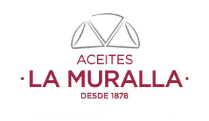
Importance of EVOO recycling and saponification technique
In this post we analyze the importance of recycling extra virgin olive oil, a product with many possibilities for reuse and recycling, as happens to the raw material from which it comes. We are going to list the peculiar characteristics of extra virgin olive oil and olives and when you finish reading you will know that you are in front of a 100% circular product where nothing is discarded and everything can have a second life.
In the production of extra virgin olive oil, the aim is to make the most of each element of the olive.
Pulp: The olive pulp is the fleshy part of the fruit that contains the oil. It is extracted through the process of milling, in which the olive is crushed to release the oil from the cells. The ground pulp is mixed and subjected to a beating or shaking process to facilitate the separation of the olive oil.
Olive bone: The olive stone, also known as the endocarp, is the hard part that surrounds the seed. It can be used as an energy source in industry, as it contains a high calorific value, or it can be used in the manufacture of briquettes or pellets.
Pomace: Pomace is the solid part that remains after extracting the olive oil from the pulp during the crushing and pressing process. It contains residues of olive pulp, stone and skin. The pomace can be used to obtain olive pomace oil by additional chemical processes. It can also be used in the production of biogas or as an organic fertilizer. Importantly, the olive oil industry has developed increasingly efficient and sustainable ways of using olive by-products. This includes the extraction of pomace oil, the use of pits and seeds in other applications, and the valorization of solid residue to obtain useful products or renewable energy.
At Aceites La Muralla the pomace is transported to biogas production plants.
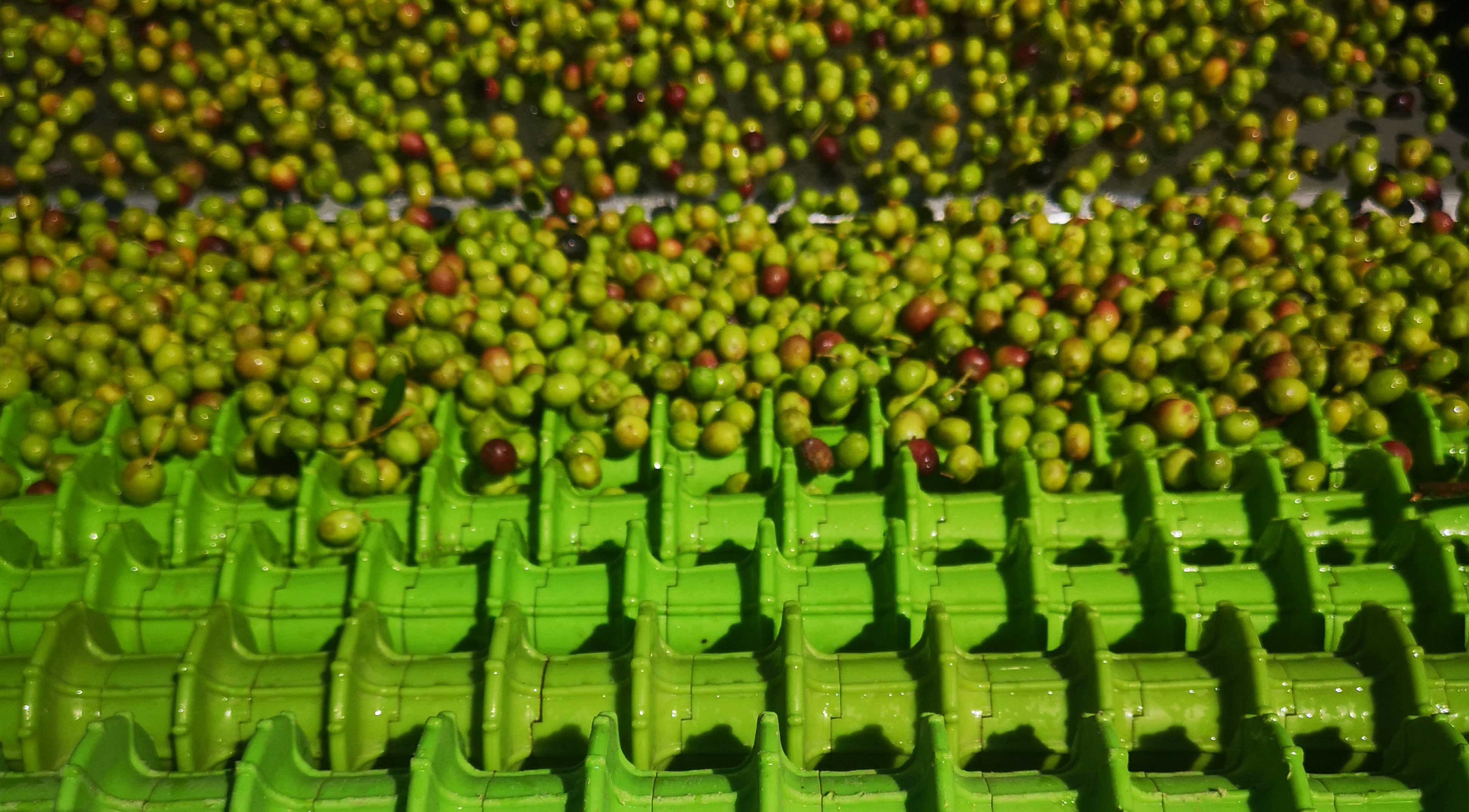
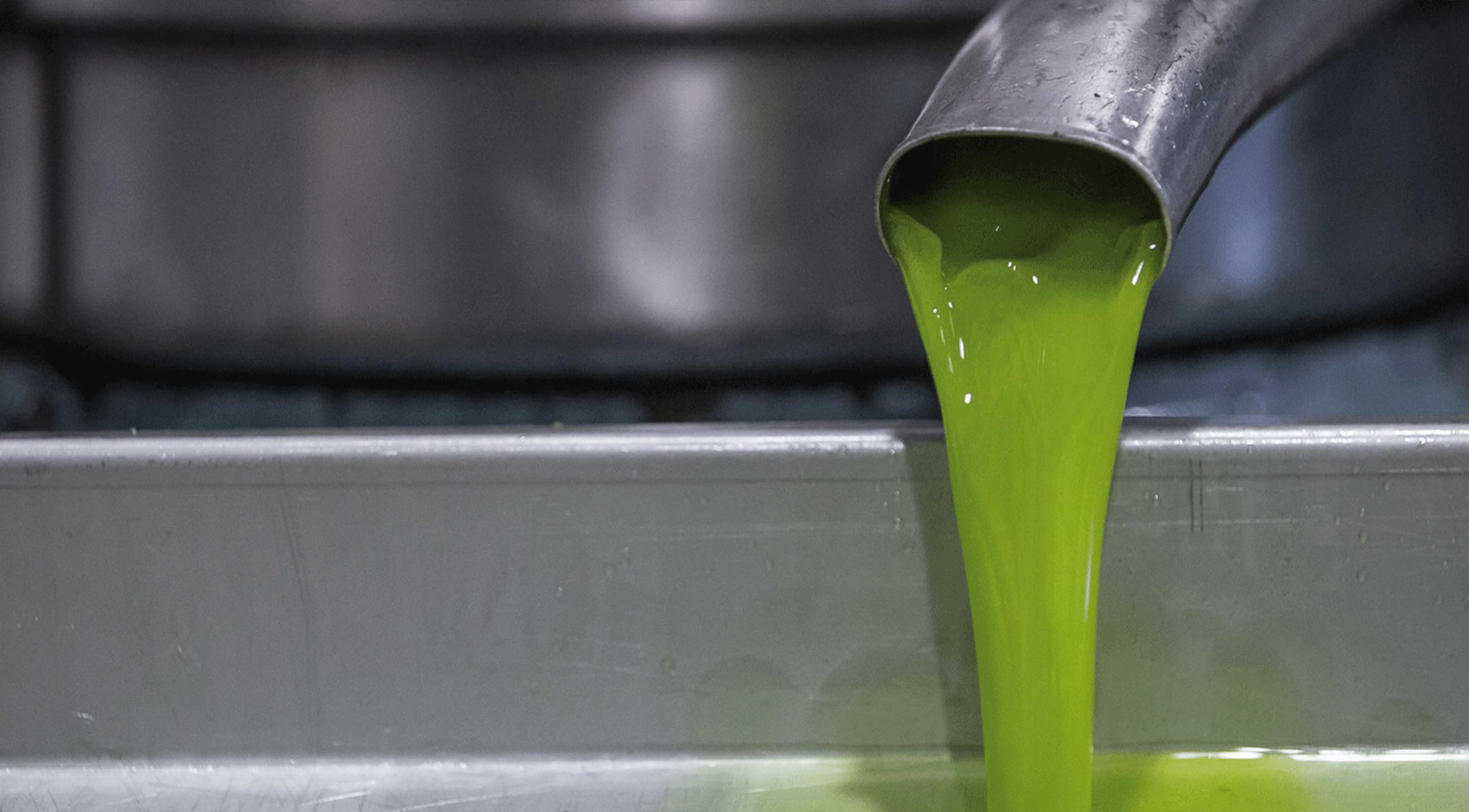
Why is the recycling of EVOO so important?
We are going to focus specifically on the recycling of olive oil, the liquid part obtained from milling. This part is as important as the others for the following reasons:
Environmental protection: Used olive oil is a waste product that, if disposed of incorrectly, can have a negative impact on the environment. If it is poured down the drain or thrown in the rubbish, it can contaminate water, clog pipes and affect soil quality. By recycling it properly, used oil is prevented from ending up in water systems or landfills, thus reducing environmental pollution.
Promoting sustainability: Recycling extra virgin olive oil is a step towards promoting sustainable practices. By giving used oil a second life, it promotes the circular economy and reduces waste generation. Furthermore, by recycling it for conversion into biofuel or other products, it encourages the use of renewable and sustainable energy sources.
It is important to note that in order to recycle used extra virgin olive oil correctly, proper processes must be followed and designated collection channels must be used. This ensures that the oil is handled safely and diverted to appropriate recycling facilities.
Olive oil should not be disposed of down the drain or in the rubbish, as it can cause problems in the pipes and damage the environment.
Did you know that 10,000 litres of water are contaminated by one litre of oil?
Although there are oil collection points for recycling in facilities, we are going to focus on the beautiful art of Do it yourself (DIY) and promote the idea of creating homemade soap, an ancient technique that accepts all kinds of oils: used, frying oil, unused oils that have exceeded their best before date....
The possibilities are immense. Now we ask ourselves: what is the difference between soap made from used oil and soap made from unused oil? Is it the same?
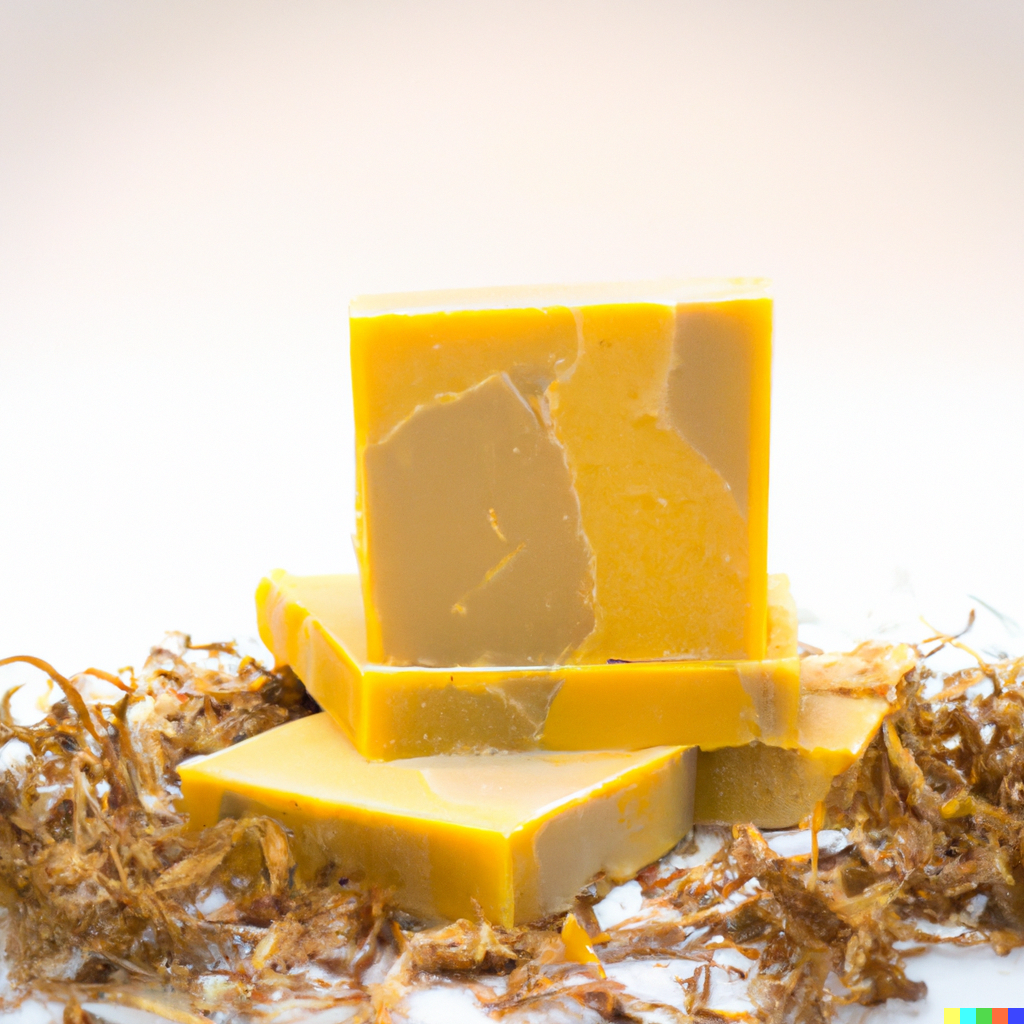
Is making soap from used oil the same as making soap from unused oil?
Both the use of unused and used extra virgin olive oil have their advantages and considerations to take into account when making soap.
Unused extra virgin olive oil:
Quality and purity: Using unused oil, such as fresh extra virgin olive oil, guarantees you a high quality and purity of the oil, which can result in a higher quality soap.
Fragrance and colour: Unused oil tends to have a milder scent and colour, allowing you to add fragrances or essential oils to customise the soap to your liking.
Control over ingredients: By using an unused oil, you have total control over the ingredients and know exactly what you are using in your soap.
Used extra virgin olive oil:
You will depend on the use of extra virgin olive oil to maintain the properties in your future soap. For example, if you use an oil filtered from a dressing, the oil is still extra virgin because it has not been altered by a heat source. However, if the oil has been fried, the intense heat has probably caused it to lose most of its properties. That is why at Aceites La Muralla we emphasise the importance of cold extraction for processing (at 22 or 27 degrees), because the polyphenols and antioxidants remain intact.
What benefits does EVOO give to soap?
Some properties of EVOO that may persist in the resulting soap are highlighted below:
Moisturising: Extra virgin olive oil is known for its moisturising properties. It contains monounsaturated fatty acids and vitamin E, which can help keep the skin hydrated. By making soap with extra virgin olive oil, some of that moisturising ability can be transferred to the soap, which can benefit the skin during washing.
Softness: Extra virgin olive oil has a soft, silky texture that can help soften the skin. When used to make soap, some of these softening qualities can be transferred to the final product, which could leave the skin softer after use.
Nourishment: Extra virgin olive oil contains antioxidants and nutrients that can help nourish the skin. These components, such as polyphenols, can contribute to maintaining the health and vitality of the skin, and some of them can be retained in the soap during the saponification process. It is important to note that the properties of extra virgin olive oil may vary depending on the quality and the manufacturing process of the oil. In addition, during the saponification process, some properties may be modified or reduced. However, the use of extra virgin olive oil to make soap can still provide benefits for the skin due to its moisturising, softening and nourishing properties. It is advisable to bear in mind that additional ingredients and the soap-making process may also influence the final properties of the product. Therefore, you may want to experiment with recipes and add other beneficial ingredients, such as essential oils or natural ingredients, to get even more specific results for your skin type.
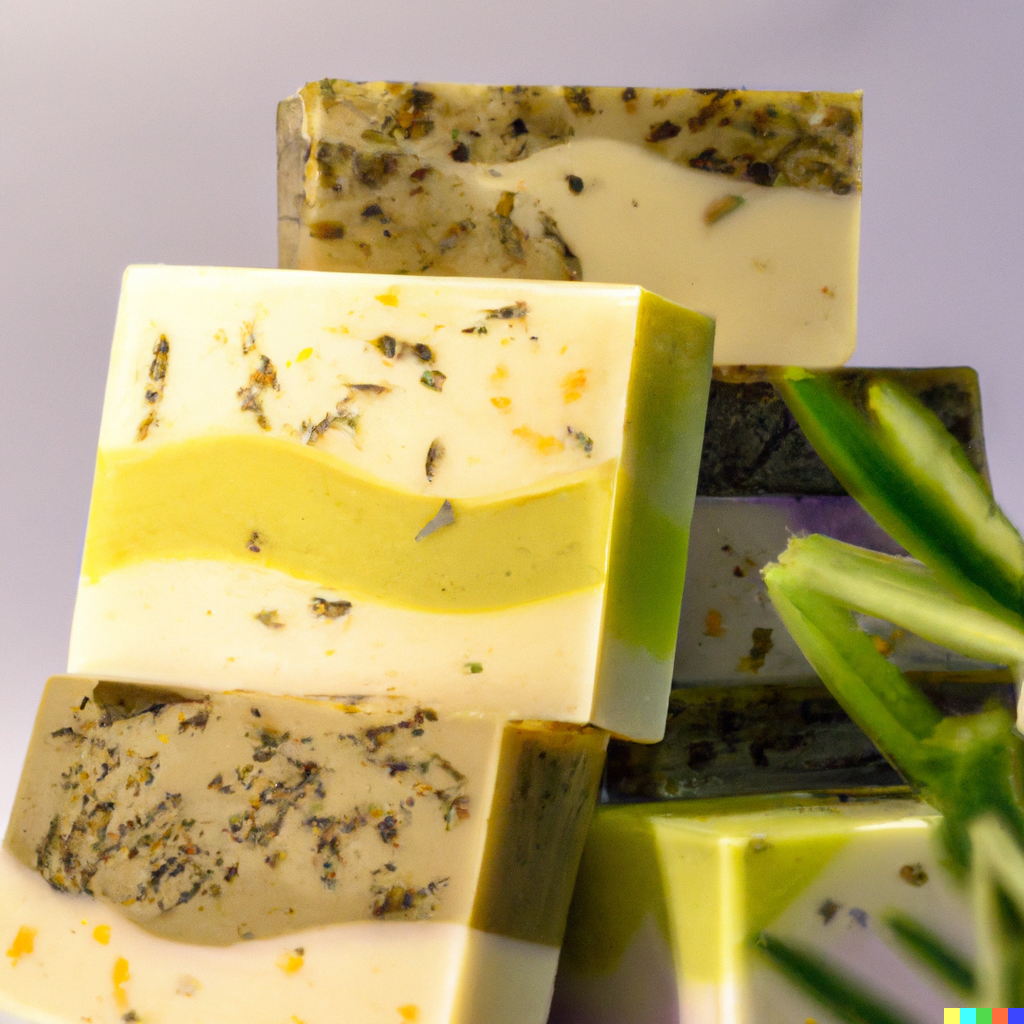
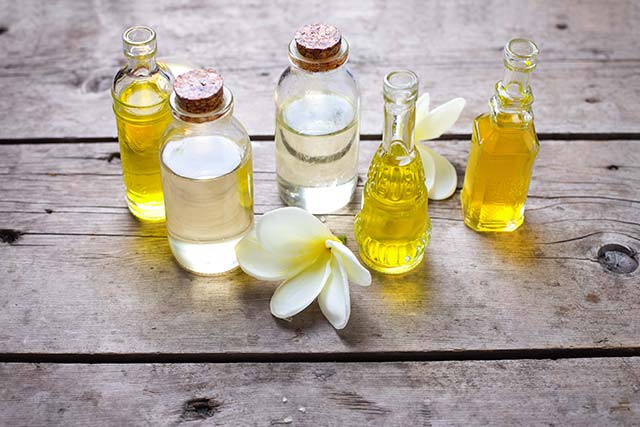
Is a cosmetic containing extra virgin olive oil the same as an oil soap?
No, it is not the same for a cosmetic product to contain extra virgin olive oil as it is for soap to be made with extra virgin olive oil (EVOO). Although both products use extra virgin olive oil as an ingredient, the properties and the manufacturing process are different.
Cosmetics with extra virgin olive oil:
Cosmetics containing extra virgin olive oil usually use it as one of the main ingredients. Extra virgin olive oil in cosmetics is used for its moisturising, antioxidant and softening properties for skin and hair. In the manufacture of cosmetics, extra virgin olive oil is combined with other ingredients to create specific products, such as creams, lotions, conditioners, lip balms, among others. We talked about this in our post Cosmetic uses of EVOO.
Soap made with extra virgin olive oil (EVOO):
When soap is made with EVOO, the process involves the saponification of the olive oil, i.e. the chemical reaction between the fatty acids in the oil and an alkali, such as caustic soda. The result of this process is a solid soap containing glycerine and the components of extra virgin olive oil. Soap made with EVOO is known to be mild, moisturising and beneficial to the skin, as it retains some of the properties of olive oil.
Is it possible to make soap from frying oil?
Yes, it is possible to make soap using used frying oil. This is a way to recycle and use cooking oil instead of disposing of it improperly, which can have a negative impact on the environment. However, there are some considerations to keep in mind when making soap from used frying oil:
Filtering: Before using fryer oil, it is important to filter it to remove any residue or food particles. You can do this by passing the used oil through a coffee filter or a sturdy cloth filter. This will help to obtain a cleaner, impurity-free soap.
Neutralisation: Used frying oil often contains free fatty acids, which can hinder the saponification process. To solve this, you can add a small amount of sodium hydroxide (caustic soda) to the used oil and heat it gently while stirring. This will help neutralise the free fatty acids and prepare the oil for saponification.
Proportions: You may need to adjust the proportions of ingredients in your soap recipe when using used frying oil. This is because used oil may contain impurities and residues that affect the quality and saponification reaction. It is advisable to look for specific recipes for soap with used frying oil for best results.
Fragrance and colour: Be aware that used frying oil can have a strong smell and colour, which can influence the final result of the soap. You may want to add additional essential oils or fragrances to mask or complement the smell. You may also consider adding natural colourants to enhance the appearance of the soap. Remember to follow proper safety practices when handling caustic soda and be sure to work in a well-ventilated area with safety goggles and gloves. It is always advisable to look for reliable recipes and follow step-by-step instructions when making soap from used frying oil for optimal results.
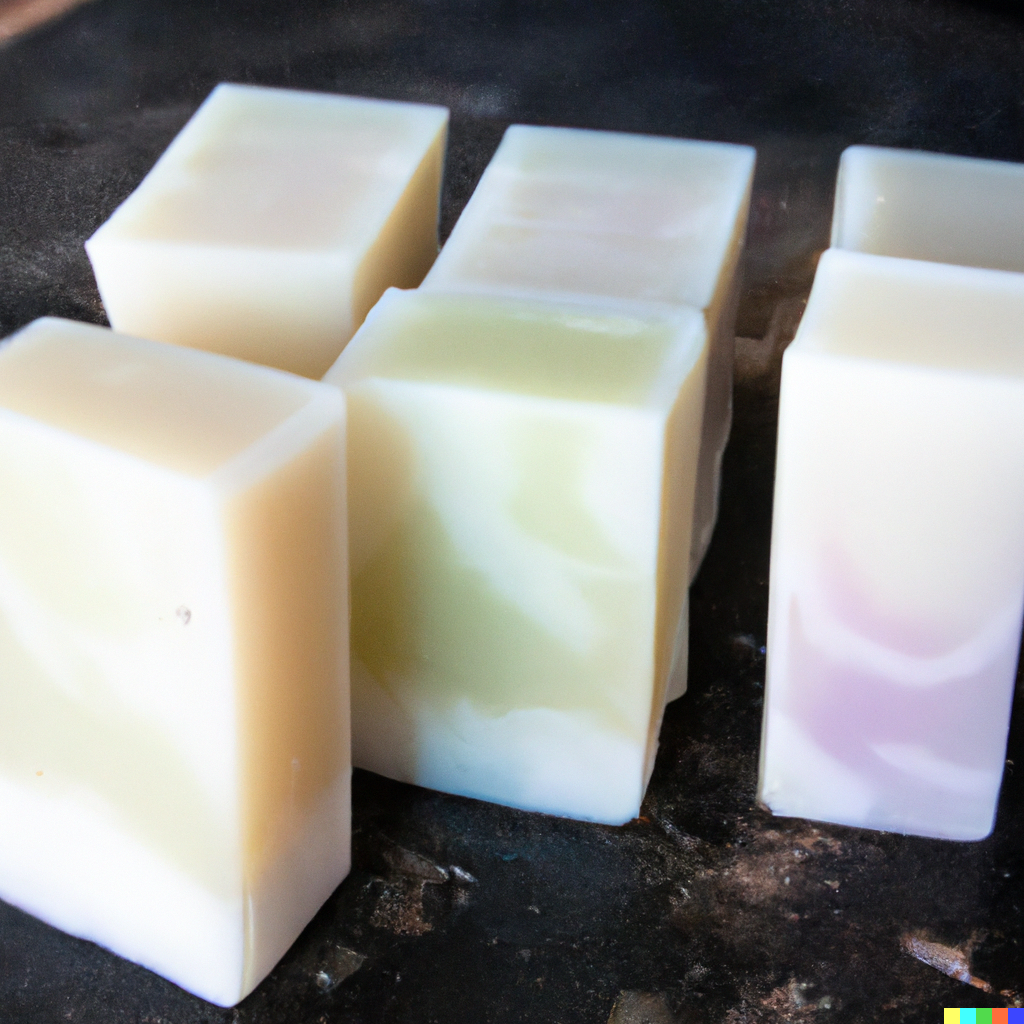
We loved this video on how to make soap, the different techniques, how to learn. We encourage you to investigate and try, it's a very rewarding process.
Did you like our post? We hope it has not been too technical for you, that it has provided you with new information and that you are as passionate about EVOO and its processes as we are.
